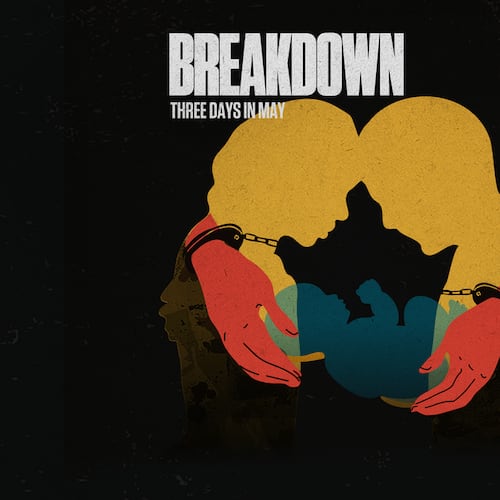Spouses, children and parents of U.S. military service members and veterans could be eligible for a reprieve from deportation under a new policy memo the Obama administration quietly issued this month.
The memo says certain relatives living illegally in the U.S. are able to receive “parole in place” and remain legally here. It’s unknown how many people could be eligible.
Administration officials said the memo formalizes long-standing practices meant to ensure airmen, Marines, sailors and soldiers won’t worry about their relatives while on duty.
Critics said the directive is part of a series of efforts by the White House to water down federal immigration laws without congressional approval. They point to the administration’s recent decisions that could soften enforcement against immigrants who were illegally brought to the U.S. as children.
Meanwhile, the Navy and Marine Corps are facing intense criticism for enlistment policies that bar applicants who have children or spouses living illegally in the U.S. Critics say these policies don’t jibe with the government’s efforts to grant parole to illegal immigrant relatives. An Air Force spokeswoman said that service doesn’t have such an enlistment policy. The Army told The Atlanta Journal-Constitution last week that it had such a policy and then it reversed itself Tuesday, saying it “does not bar enlistment of applicants based on the immigration status of a family member.”
Pablo Borrero of Dacula has applied for parole for his wife, Liliana, who was a child when she was illegally brought to the U.S. from Mexico. He said she would apply for legal permanent residency and then U.S. citizenship if she is awarded parole. A disabled Army veteran, Borrero worries how he would manage alone with their five children if his wife were forced to return to Mexico.
“It would be a hardship for me because I’m the sole provider for my family,” said Borrero, a restaurant manager. “I’m the only one working. And day care [costs] would be outrageous for me.”
The government has been awarding illegal immigrants this type of parole since at least 2008 during the Bush administration. Officials said they issued the memo this month to make sure the government applies the policy consistently across the nation.
Homeland Security Department spokesman Peter Boogaard said the policy is aimed at helping “reduce the uncertainty our active-duty and retired military personnel face because of the immigration status of their family members.”
The Defense Department endorsed this approach in a prepared statement issued last week, saying it “supports the family members of our men and women in uniform and those who have served this country.”
Administration officials said the executive branch has the legal authority to offer this relief without congressional approval. But critics are crying foul. They say the policy is an illegal end run around Congress.
“If the president wanted to exempt relatives of military personnel from deportation, he should have put a bill before Congress,” said Dan Stein, president of the Federation for American Immigration Reform, a Washington-based group that advocates for tougher immigration enforcement. “Instead, he has once again chosen to bypass Congress and exercise broad powers not granted to him under the Constitution.”
Immigrant rights activists based in Georgia are applauding the policy. But they want the Obama administration to go further and halt all deportations. Some of these activists loudly drew attention to their cause last week when they locked themselves to the gates of the U.S. Immigration and Customs Enforcement building in downtown Atlanta.
Meanwhile, a bipartisan group of 33 congressmen is raising concerns about Navy and Marine Corps enlistment policies involving family members living illegally in the U.S. Last week, the congressmen sent a letter about the controversy to top military officials.
“There is no reason I can think of why any branch of the military should restrict the military service of individuals based on the immigration status of someone else in their family. None,” U.S. Rep. Luis Gutiérrez, an Illinois Democrat and chairman of the Immigration Task Force of the Congressional Hispanic Caucus, said in a prepared statement Friday. “I want to know where this is happening, why and what is being done to fix it?”
Asked about the reasoning for the enlistment policy, a Marine Corps spokesman said there are “a variety of military benefits not available to undocumented dependents by law.”
“This is also in policy for security purposes,” said Maj. Stuart Fugler, a Marine Corps Recruiting Command spokesman. “Our recruiting force screens applicants for mental, physical and moral qualifications. An applicant with any dependent who illegally resides in the U.S. will not be enlisted because they are breaking the law.”
A Navy spokeswoman referred to a national security questionnaire the armed service’s employees must fill out.
“In order to complete that, the member must have the proper paperwork for any dependent they may have,” said Cmdr. Wendy Snyder, the Navy spokeswoman.
Margaret Stock, an attorney based in Alaska and an expert on military-related immigration matters, said she has received numerous telephone calls from people concerned about the Navy’s and Marine Corps’ enlistment policies. Those policies, she said, don’t jibe with the government’s new memo on granting parole to illegal immigrant relatives of U.S. military service members and veterans.
“It is a contradiction,” she said. “It represents the left hand not knowing what the right hand is doing in the federal government.”
About the Author
Keep Reading
The Latest
Featured


